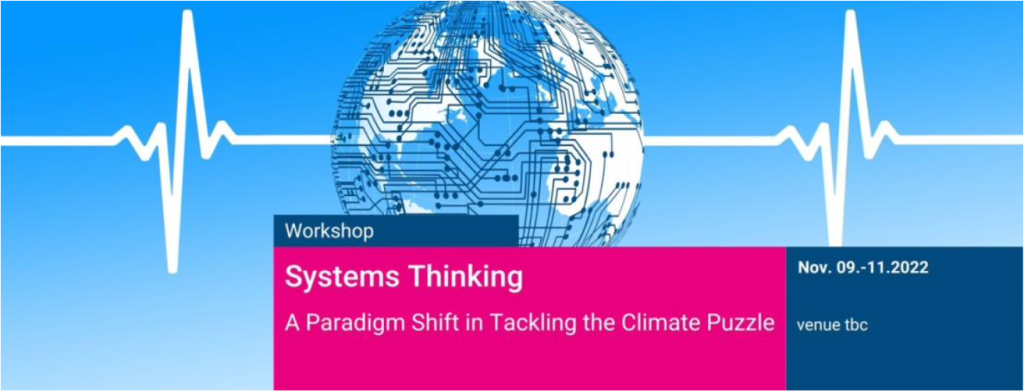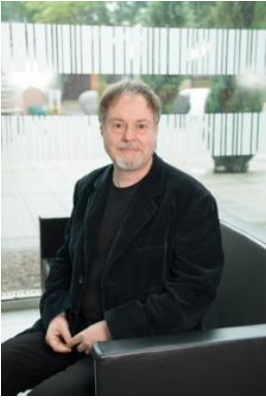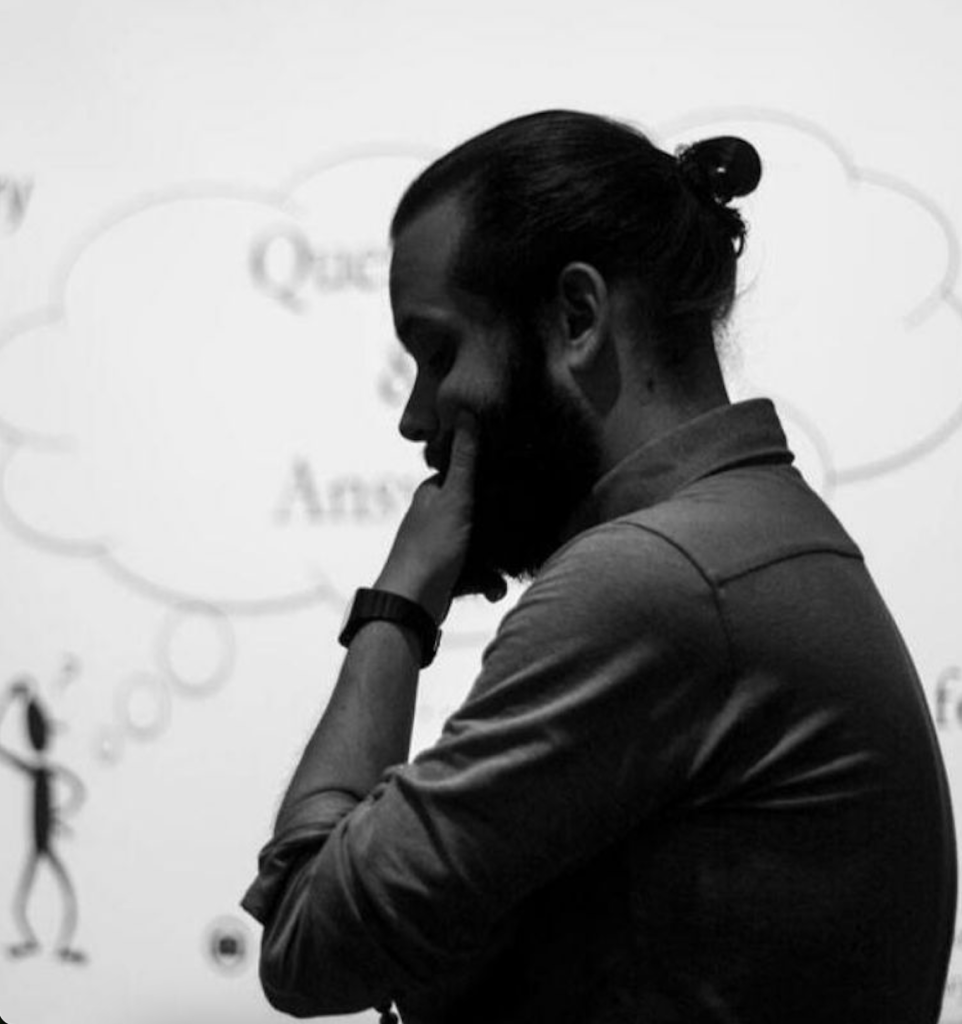
PROGRAMME
Wednesday, Nov. 09, 2022
| 15.00 | Arrival and check-in Thon Hotel Brussels |
| 17.00 17.15 17:45 19.30 | Welcome Venue: Thon Hotel Meeting room Jules Maaten Regional Director, European Dialogue Programme, Friedrich Naumann Foundation for Freedom Dr. Nele Fabian European Affairs Manager, Friedrich Naumann Foundation for Freedom Christopher Gleadle CEO, The Paddy Ashdown Forum Isabelle Pucher Project Director, The Paddy Ashdown Forum Group Introduction and team building Natural Self-Organising Systems and what we can learn Dr. Emma SaundersGeneral Manager Europe, Genesis Biosciences Welcome Dinner Thon Hotel |
Thursday, Nov. 10, 2022
Venue: Thon Hotel Meeting room
Friday, Nov. 11, 2022
Venue: Friedrich Naumann Foundation Europe, Av de Cortenbergh 71, 1000 Bruxelles
| 08.30 09.00 09:30 | Hotel check-out Systems Thinking Applied II: Value Conflict Resolution Prof. Dr. Gerald Midgley Coffee Break |
| 09:45 13.00 | Consequences – Group exercises, and presentations Christopher Gleadle Prof Dr Gerald Midgley Dr Michael Walsh Lunch End of Workshop |
REGISTER NOW
Kindly register for this event via email at nele.fabian@freiheit.org. Please note that spaces are limited.
Workshop participation is free of charge. Travel costs, accommodation and meals during the workshop meals are provided by FNF.
ABOUT THE WORKSHOP
All organisations face complex challenges and opportunities. Today’s challenges are often created at the intersection of social, technological, environmental, economic, governance and geo-political tensions. This has led to fragmentation of policy solutions that have unintentionally imposed burdens on employers, individuals, and the environment to harm the biosphere and the communities they were meant to protect. What if these burdens were avoidable? What if governments could equip themselves with better tools to tackle complexity? What contribution would you make if YOU had access to those same tools? Why is it a core liberal interest to acquire these tools?
What to expect?
This workshop takes you on the start of a professional development journey. You’ll explore systems thinking, a scientific tool that helps remodel decision-making processes and tackle complex interdependent issues for sustainable viability.
Systems thinking is applied in many different fields of academic research. Brought down from theory into practice it is a most critical skill to meet multiple interdependent goals that empowers us to excel both as individuals and collectively. Systems thinking explores the boundaries of what we account for in decision-making, how to fully appreciate multiple stakeholder perspectives, and how to see organisations, communities, and the planet as an interdependent system. Accordingly, systems thinking is useful right across the private, public, voluntary and community sectors – especially when set up to achieve joint objectives that they cannot realise on their own.
For liberals, improving the interconnectivity of systems in different policy fields, reducing opportunity costs, and increasing performance is a natural ambition. Systems thinking provides freedom to achieve this ambition: breaking free from where such ambitions usually get stuck. For example, systems thinking can help components of a free-market economy to grow and become resilient in an increasingly competitive world, all the while building both social value and climate protection. Ideally, this process can accelerate action toward an equitable, just, inclusive, fair, and authentic net-zero world. This, in turn results in greater freedoms for all in an interdependent world.
Why should you join?
You will dive in to a world of three-dimensional thinking that goes beyond your usual education and experience. You will raise your ability to understand the unknown unintended consequences and missed opportunities from decisions in the systems in which you live and work, and apply your insights flexibly to other and bigger problem fields, including global markets, climate change, and the environment. Learn how actions of each of us affects the many. Start thinking three-dimensionally and understand the feedback loops that can cause systemic problems to remain unsolved. Become a better decision-maker and problem-solver to harmonise operational functions and government policies. Advance positive action for the improvement of climate change, the amelioration of biosphere service levels and greater social justice, the greatest innovation today is a shift to systems thinking.
OUR EXPERTS

Christopher Gleadle is CEO of The Paddy Ashdown Forum (PAF). He is a veteran consultant, speaker and trainer in critical systems thinking at the nexus of human, technical and natural systems. He has published substantially in the field and contributed ground-breaking tools, such as the Sphere Economy model, which is now a widely recognized method to apply systems thinking to economic problems. Chris specialises in teaching and promoting three-dimensional problem-solving at the interface of economic productivity, sustainability, the biosphere, and social justice.

Prof. Dr. Gerald Midgley is Professor of Systems Thinking in the Hull University Business School. He also holds Adjunct Professorships at the University of Queensland, Australia; Mälardalen University, Sweden; the University of Canterbury, New Zealand; and Victoria University of Wellington, New Zealand. Gerald was Director of the Centre for Systems Studies at Hull from 1997 to 2003 and from 2010 to 2014. He has had more than 300 papers published on systems thinking, action research and stakeholder engagement, and has been involved in a wide variety of public sector, community development and resource management projects.

Isabelle Pucher is Director of Projects The Paddy Ashdown Forum (PAF). She is a former policy advisor and researcher with an extensive background on topics such as Europe, defence, trade, international relations, diplomacy, or Nordic Council, to name just a few. Isabelle draws on a diverse professional background from the Swedish Parliament as well as the House of Commons & House of Lords.

Dr. Emma Saunders is General Manager at Genesis Biosciences an integral part of scientific innovation in the UK. With a background in Biochemistry and Genetics with Physiology, Emma Saunders drives industry-leading, performance-driven products and solutions surrounding technology and science: playing a direct role in addressing major challenges our world faces, from diagnosing and curing diseases, reducing hunger and poverty, and protecting the environment.

Dr. Michael Walsh, is senior lecturer in Management, Work and Organisation at the University of Stirling. He is a member of the Sterling Institute for Health (and acted as its inaugural chair from 2009-2012), the Operational Research Society and the Institute for Consulting. His expertise in critical systems thinking, action research and participative planning and problem solving underpins his research and development.
Facilitator

Sven Gerst is a PhD Candidate in Political Philosophy at the Department of Political Economy at King’s College London. He holds an M.Sc. in Philosophy from the London School of Economics and Political Science (LSE) as well as an M.Sc. in Management from the University of Mannheim. As a former Secretary General of the International Federation of Liberal Youth (IFLRY), Sven has worked with more than 50 political parties, NGOs, and think tanks from all over the world on public policy, strategic communication, and capacity-building.
ABOUT FNF & PAF
The Friedrich Naumann Foundation for Freedom (FNF) is a publicly funded German political foundation that seeks to foster open dialogue and discuss liberal policy solutions to European challenges through the connection of EU experts, civil society, and decision makers. Together with our liberal partners, we develop formats and campaigns to promote rule of law, free markets and human rights. Moreover, we coordinate EU co-funded projects in the field of democracy support, development cooperation and human rights protection.
The European Dialogue Programme of FNF has offices in Brussels, Madrid, and Prague.
The Paddy Ashdown Forum (PAF) is an independent liberal Think and Do Tank affiliated with the European Liberal Forum (ELF) and Liberal International. We bring together a diverse spectrum of stakeholders to produce new thinking on issues in the United Kingdom, Europe at large, as well as internationally. The purpose is to promote education regarding national and international governance from advancing research that recognises the importance of critical systems thinking in decision-making as well as its practical implementation into real-world situations. PAF’s headquarters are based in London.